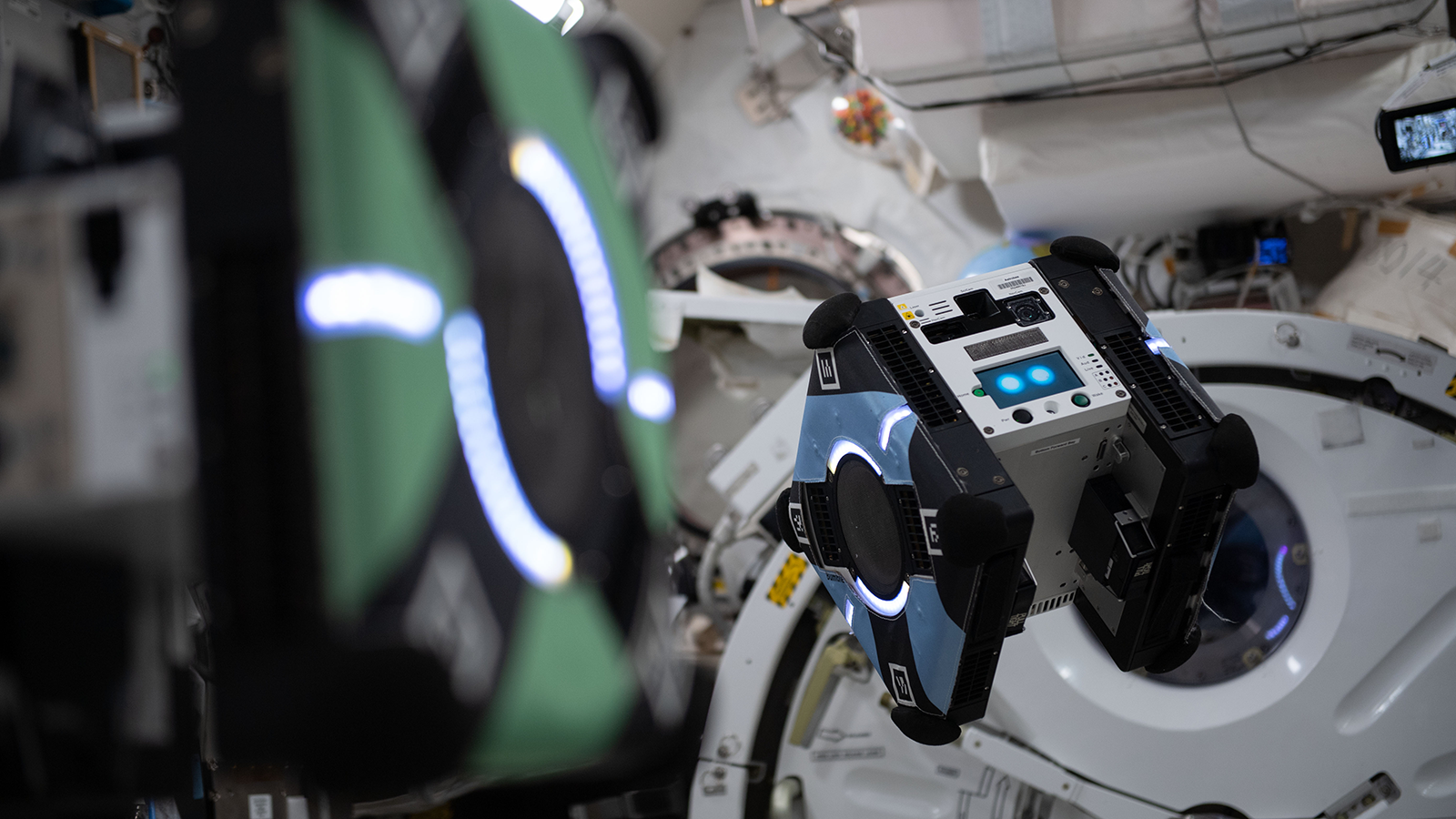
Jack Loughran Tue 27 Aug 2024
Collected at: https://eandt.theiet.org/2024/08/27/nasa-looks-expand-use-its-free-flying-robots-aboard-iss
Nasa intends to expand the use of its Astrobee free-flying robots that carry out various activities aboard the International Space Station (ISS).
The cube-shaped robots – named Bumble, Honey and Queen – have been helping astronauts and researchers perform technology demonstrations, scientific research and STEM (science, technology, engineering and mathematics) activities in space since 2018.
The battery-powered robots fly around the space station’s modules using electric fans for propulsion and can ‘see’ their surroundings using lights, cameras and other sensors. They have interchangeable ‘arms’ that allow them to hold objects or remain steady for tasks requiring stability, and magnets to ensure they stay securely docked when recharging.

Nasa
Nasa is now seeking input from US companies for further ideas to foster scientific, educational and technological development on board the station.
“Dozens of institutions collaborate with Nasa to use the Astrobee system to test new hardware and software technologies,” said Jose Benavides, Astrobee project manager at Nasa’s Ames Research Center. “I’m excited to hear how respondents think Astrobee can continue to advance robotics in space.”
The robots are capable of working autonomously, or via remote control by astronauts, flight controllers or researchers on the ground.
In the past, they have worked independently to assist with routine chores such as space station monitoring, maintenance, inventory, experiment documentation or moving cargo throughout the station. This allows astronauts more time to tackle complex work that only humans can perform.

Nasa
They have already been used in thousands of hours of testing on hundreds of microgravity experiments. For example, Nasa’s ISAAC (Integrated System for Autonomous and Adaptive Caretaking) project, used the Astrobees to study how robots could assist spacecraft, vehicle systems and ground operators.
Nasa says that furthering the ability for humans to collaborate with robots in space will pave the way for future crewed and uncrewed spacecraft maintenance and exploration tasks done by robots both off-planet and in deep space.
It plans to decommission the ISS in 2031 while supporting the creation of private Earth-orbiting space stations, of which the agency would only be one customer.
SpaceX was recently selected to launch the commercial Starlab space station to low-Earth orbit before 2030.

Leave a Reply